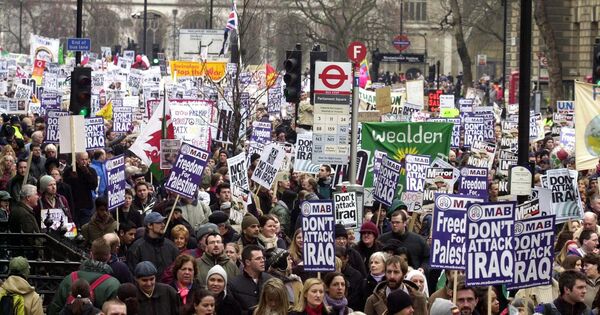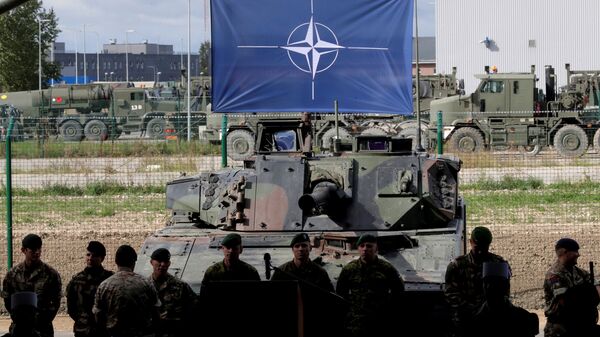Young Labour — the youth wing of the UK Labour Party, membership is automatic for party members aged 14-26 — has set itself at odds with the party's leadership by demanding UK withdrawal from NATO.
It is reported that @YoungLabourUK's delegates have voted today in favour of a motion to withdraw the UK from NATO. pic.twitter.com/Rhhp1Pnivj
— Jakub Krupa (@JakubKrupa) October 15, 2017
The sweeping motion included many protocols, under the collective heading of "Support Corbyn and Internationalism, Oppose Trump and NATO," stating UK membership of the bloc made the country "complicit in American overseas aggression."
"From Guyana to Vietnam to Iraq, the Labour party [has] all too often been complicit in American overseas aggression. NATO has been the lynchpin and institutional expression of American imperialism. Like its leader, shadow chancellor and shadow home secretary, the Labour party should be avowedly anti-imperialist. [The UK should withdraw] from NATO on the basis it no longer meets our collective security needs," the motion said.
Motions from the conference go forward to the party's National Policy Forum for discussion, as the youth wing does not have executive power to make decisions on Labour policy. The news will likely be unwelcome for Corbyn, who has faced repeated pressure over his stance on the UK's membership of the defense alliance.
In a speech in 2011, before becoming leader, he suggested NATO was a "danger to world peace," although Labour's June election manifesto contained an explicit pledge for continued membership of NATO. Moreover, following the conference motion passing, a spokesperson for Jeremy Corbyn said the leader and Labour alike were committed to the bloc.
The youth group also rejected a two-state solution in Israel and Palestine and called for banks to come under public ownership.
Sputnik UK contacted the group for comment, but is yet to receive a response.
Standing Apart
Jeremy Corbyn has long been a committed critic of UK's foreign adventurism, and quite out of step with his own party on this point.
While Labour overwhelmingly supported the UK's involvement in the October 2001 invasion of Afghanistan, and was bitterly divided over the 2003 Iraq War, the Labour leader was heavily involved in grassroots organizations opposing these and other wars, such as the Stop the War coalition, which he chaired 2011-2015.
During this time, he was one of the key organizers of the famous 2003 anti-war march in London, attended by a record 2 million people.




